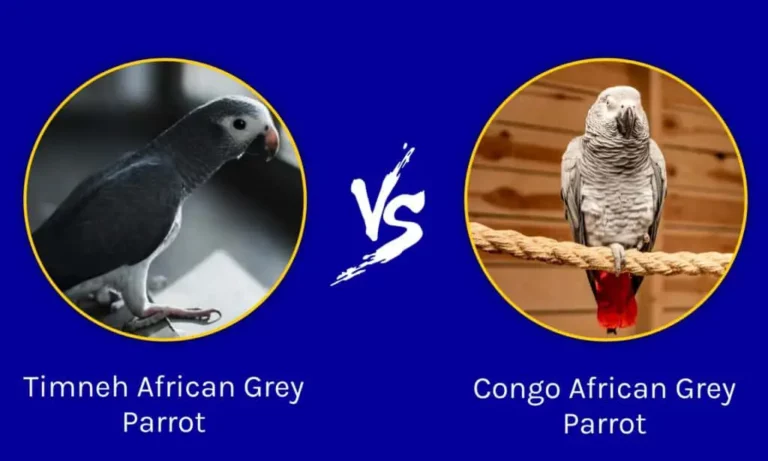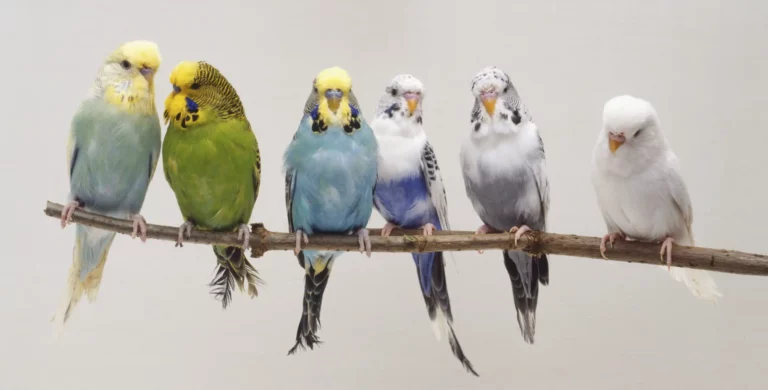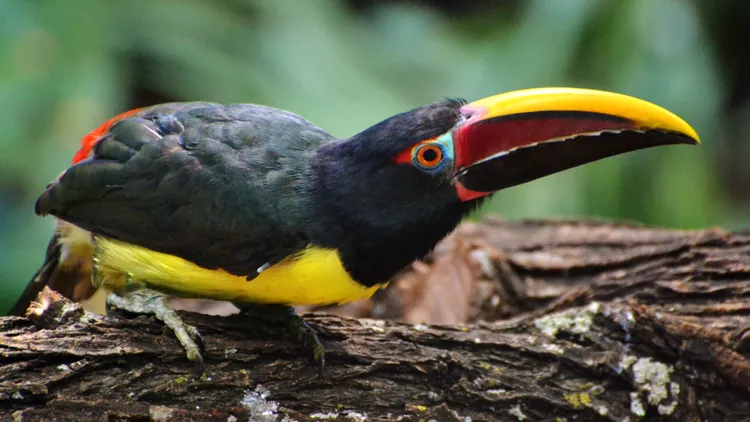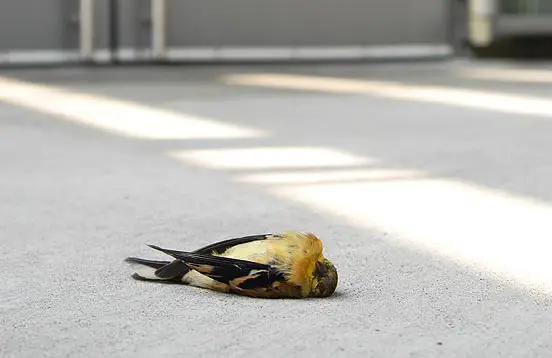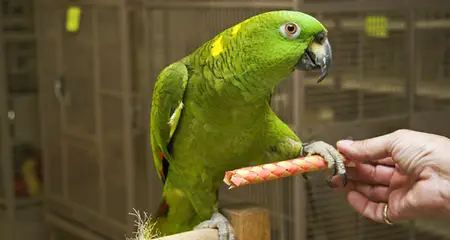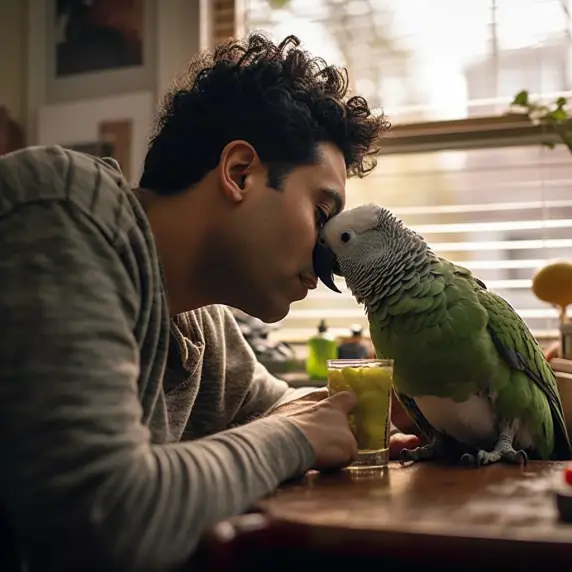Why is My Parakeet Grinding Its Beak?
If you’re a bird parent, you’ve likely asked yourself this question: “Why is my parakeet grinding its beak?” Beak grinding is a common behavior observed among parakeets and many bird species. However, the reasons behind this behavior can vary, and understanding them is crucial to ensure your feathered friend’s well-being.
Key Takeaways:
- Beak grinding in parakeets can indicate several states, ranging from contentment to potential health issues.
- Recognizing the context and accompanying signs is key to interpreting your parakeet’s beak-grinding behavior accurately.
- Consultation with an avian vet is advised if beak grinding is accompanied by symptoms of illness.
In this blog post, we’ll explore the various reasons behind this intriguing behavior and provide helpful insights to help you better understand and care for your parakeet.
Parakeet Beak Grinding: Decoding the Behavior
Parakeets, or budgies as they’re commonly known, are expressive birds that use different behaviors to communicate their emotional and physical states. Beak grinding is one such behavior that many parakeet owners notice. This action involves the bird moving its top and bottom beak together side-to-side or up and down, producing a grinding sound.
When it comes to the question, “why is my parakeet grinding its beak?“, several reasons might be at play. Understanding these reasons can provide valuable insights into your bird’s well-being and comfort.
Here are some common causes of beak grinding in parakeets:
- Contentment: One of the primary reasons parakeets grind their beaks is contentment. This behavior is often observed when the bird is relaxed or ready to sleep. It’s a sign that your bird feels safe and comfortable in its surroundings.
- Maintaining Beak Health: Parakeets also grind their beaks as a way to keep them in good shape. This behavior helps remove any loose or frayed parts of the beak, ensuring that it remains sharp and well-maintained.
- Stress or Discomfort: While less common, beak grinding can sometimes indicate stress or discomfort. This is typically accompanied by other signs of distress, such as loss of appetite, changes in droppings, or unusual aggression. If you notice these signs, it’s essential to consult an avian vet.
- Sign of Illness: If your parakeet is grinding its beak excessively and displaying symptoms like lethargy, fluffed-up feathers, or decreased activity, it could be a sign of illness. Immediate consultation with an avian vet is advised.
Understanding these various reasons can help you correctly interpret your parakeet’s beak-grinding behavior and respond appropriately to ensure its well-being.
Understanding the Differences: Beak Grinding vs. Beak Trimming
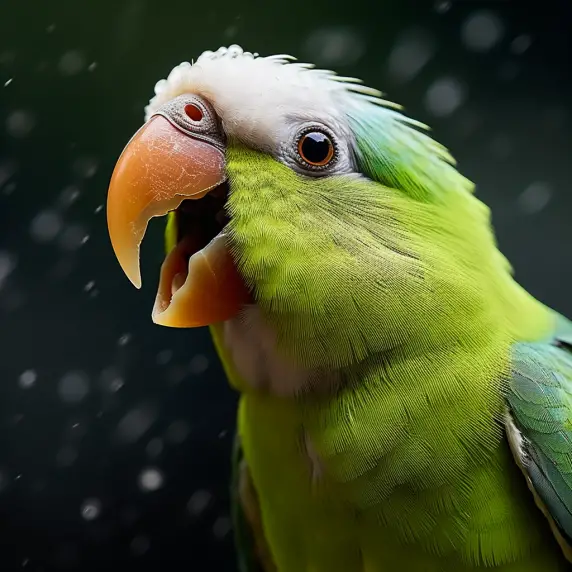
When it comes to parakeets, not all beak-related behaviors are the same. Two actions often confused are beak grinding and beak trimming. While they might appear similar to the untrained eye, they serve different purposes and are associated with different states of the bird.
Beak Grinding
As mentioned earlier, beak grinding is a common behavior exhibited by parakeets. It involves the bird rubbing its top and bottom beak together, producing a distinct grinding sound. Parakeets usually do this when they are content and relaxed, or as a way to maintain their beak health.
Beak Trimming
Beak trimming, on the other hand, involves the bird scraping its beak against various surfaces. The purpose of this behavior is to keep the beak at a comfortable length and shape. Unlike grinding, which can be a sign of contentment, beak trimming is a practical behavior aimed at physical maintenance.
Being able to differentiate between these behaviors is crucial for understanding your parakeet’s needs and emotional state. Both behaviors are natural and are generally not a cause for concern unless accompanied by signs of distress or illness.
The Health Aspect: When Beak Grinding May Indicate a Problem
While beak grinding is generally a sign of a happy and relaxed parakeet, there are instances when it might indicate a potential health issue. It’s essential to observe your bird’s overall behavior and not to rely solely on beak grinding as an indicator of well-being.
Here are some situations when beak grinding could point toward a health issue:
- Excessive Grinding: A little beak grinding is normal, but if your parakeet is continuously grinding its beak, it could be an indication of discomfort or stress. Overgrown or misshapen beaks may lead to excessive grinding, and you should consult with a vet to rule out any underlying issues.
- Change in Grinding Sound: Parakeets have a characteristic sound when grinding their beaks. If you notice any changes in this sound or if the grinding seems to cause discomfort to your bird, it’s worth having a vet check your bird.
- Accompanied by Other Signs of Illness: If the beak grinding is accompanied by other signs of illness such as loss of appetite, lethargy, changes in poop, or feather plucking, it’s essential to get your bird to a vet as soon as possible.
Remember, you know your bird best, so trust your instincts. If something feels off, it’s better to be safe and consult a vet. Regular health checks can help ensure your parakeet is healthy and happy.
Managing Beak Grinding: Recommendations for Pet Owners
Though beak grinding in parakeets is usually a benign behavior that indicates comfort and contentment, as pet owners, there are certain things you can do to manage this behavior, especially if it seems excessive or concerning.
- Monitor your Bird’s Health: Regular health check-ups with a certified avian veterinarian can help you catch any potential issues early. You should also keep an eye on your bird’s overall behavior and demeanor to notice any changes quickly.
- Provide Adequate Chew Toys: Providing your parakeet with plenty of chew toys can help maintain a healthy beak and satisfy their natural urge to chew and grind.
- Ensure a Balanced Diet: A balanced diet is crucial for your bird’s overall health, including beak health. Include a variety of fruits, vegetables, grains, and suitable bird pellets in their diet.
- Maintain a Stress-free Environment: Stress can lead to excessive beak grinding. Try to maintain a calm and quiet environment for your bird, and make sure they are getting enough sleep.
- Handle with Care: Handling your bird gently and regularly can help establish trust and make your bird feel more relaxed.
Remember, understanding and addressing your bird’s needs is key to their happiness and well-being. So, enjoy the soothing sounds of beak grinding, knowing it’s a sign of a content bird.
Other Parakeet Sounds and Behaviors: A Comprehensive Overview
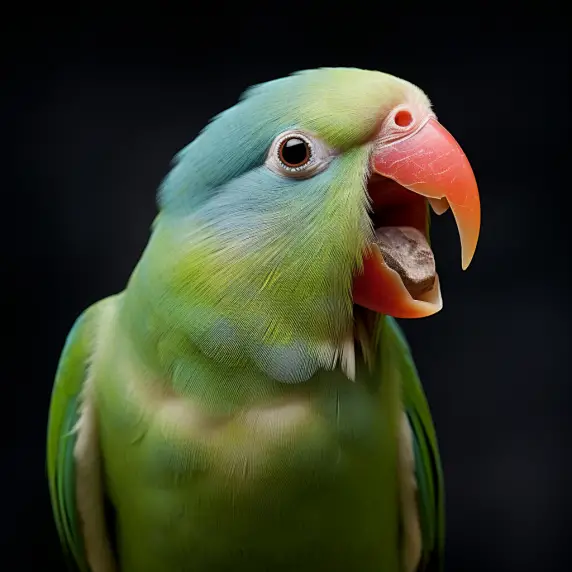
Understanding your parakeet goes beyond just beak grinding. These delightful birds possess a wide range of behaviors and sounds, each indicating unique aspects of their emotions, health, and overall well-being.
- Chirping and Singing: These are generally signs of happiness and contentment. A chirping parakeet is usually a happy parakeet!
- Squawking or Screaming: Loud, piercing noises could indicate fear, discomfort, or a need for attention. It’s important to investigate and address the cause.
- Purring: Yes, parakeets can purr too! This sound is a series of rapid, low-pitched notes, and it usually indicates contentment.
- Fluffed Feathers: Parakeets fluff their feathers for grooming, but prolonged fluffing might signal illness.
- Head Bobbing and Swinging: These behaviors are a form of play and can indicate a happy and healthy bird.
- Biting: This can signal fear, discomfort, or an attempt at asserting dominance. If your bird bites, it’s important to identify the cause and work on trust-building activities.
- Regurgitation: This can be a sign of affection if your parakeet regurgitates for you. But if it’s frequent and not directed at you or a toy, it might be a sign of a health issue.
Remember, while these behaviors are typical, every bird is unique. Getting to know your individual bird’s habits and quirks is part of the joy of parakeet ownership!
Related:
Frequently Asked Questions
In this section, we will answer some of the most commonly asked questions about parakeet beak grinding and related behaviors.
1. Why is my bird grinding its beak?
Beak grinding is typically a sign of contentment and relaxation in birds, including parakeets. It’s most often seen when they are about to sleep or are very relaxed.
2. Why is my parakeet making a grinding noise?
Your parakeet is likely grinding its beak, which is normal behavior. This is typically done when they are relaxed and comfortable, often before going to sleep.
3. Why is my budgie grinding?
Budgies, also known as parakeets, grind their beaks as a sign of contentment. It is usually an indication that they are relaxed and happy.
4. How do I know if my parakeet is stressed?
Stress in parakeets can manifest as loss of appetite, aggression, feather plucking, or constant squawking, among other signs. Beak grinding, on the other hand, is usually not a sign of stress.
5. Why is my budgie grinding its beak at night?
Parakeets often grind their beaks at night as a part of their pre-sleep routine. It’s a sign that your bird is relaxed and ready for a good night’s sleep.
6. Why does my budgie grind its beak when I talk to him?
If your budgie grinds its beak when you talk to it, it could be a sign of contentment. Your voice might be soothing to your bird, causing it to relax and express its comfort by grinding its beak.
Final Thoughts
Understanding why a parakeet grinds its beak is a vital part of becoming an informed and conscientious bird owner. This common behavior can serve as a window into your parakeet’s feelings, helping you ensure they are content and healthy.
Remember, beak grinding is typically a good sign, indicating a relaxed and comfortable bird. However, if it’s coupled with other signs of distress or illness, it’s important to consult a veterinarian.
Continue learning about parakeet behaviors to create a supportive environment for your feathered friend. The more you understand their behaviors, the better you can cater to their needs and ensure a happy, healthy life for your pet parakeet.

